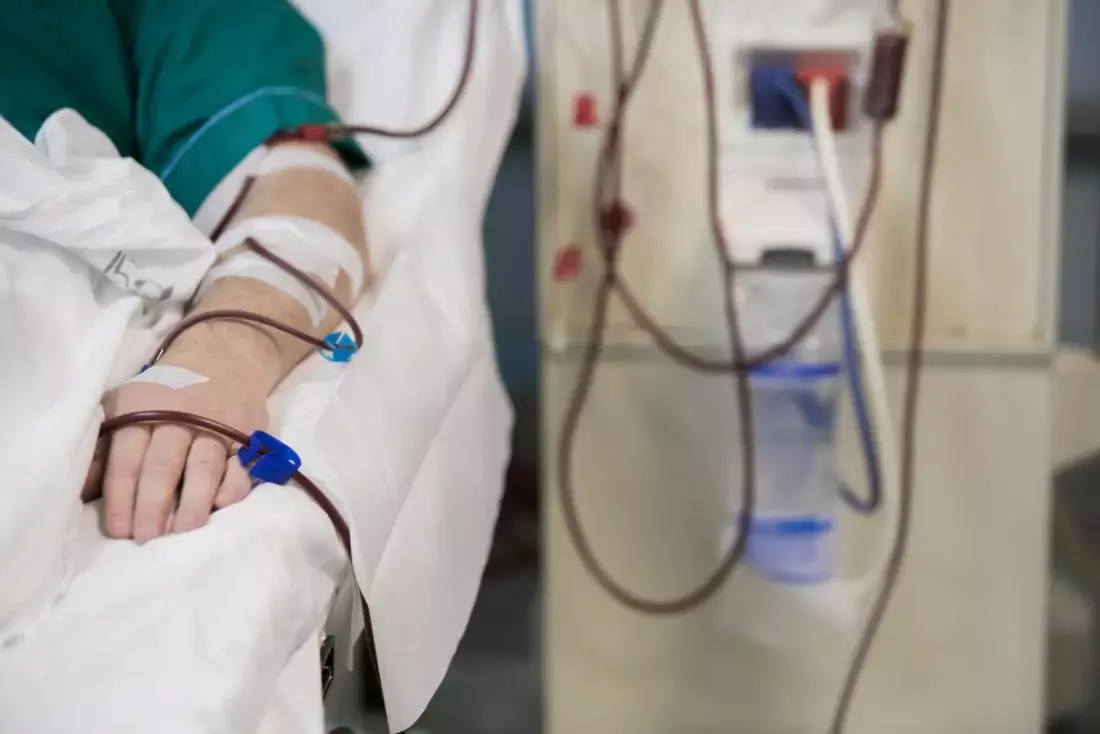- Home
- Medical news & Guidelines
- Anesthesiology
- Cardiology and CTVS
- Critical Care
- Dentistry
- Dermatology
- Diabetes and Endocrinology
- ENT
- Gastroenterology
- Medicine
- Nephrology
- Neurology
- Obstretics-Gynaecology
- Oncology
- Ophthalmology
- Orthopaedics
- Pediatrics-Neonatology
- Psychiatry
- Pulmonology
- Radiology
- Surgery
- Urology
- Laboratory Medicine
- Diet
- Nursing
- Paramedical
- Physiotherapy
- Health news
- Fact Check
- Bone Health Fact Check
- Brain Health Fact Check
- Cancer Related Fact Check
- Child Care Fact Check
- Dental and oral health fact check
- Diabetes and metabolic health fact check
- Diet and Nutrition Fact Check
- Eye and ENT Care Fact Check
- Fitness fact check
- Gut health fact check
- Heart health fact check
- Kidney health fact check
- Medical education fact check
- Men's health fact check
- Respiratory fact check
- Skin and hair care fact check
- Vaccine and Immunization fact check
- Women's health fact check
- AYUSH
- State News
- Andaman and Nicobar Islands
- Andhra Pradesh
- Arunachal Pradesh
- Assam
- Bihar
- Chandigarh
- Chattisgarh
- Dadra and Nagar Haveli
- Daman and Diu
- Delhi
- Goa
- Gujarat
- Haryana
- Himachal Pradesh
- Jammu & Kashmir
- Jharkhand
- Karnataka
- Kerala
- Ladakh
- Lakshadweep
- Madhya Pradesh
- Maharashtra
- Manipur
- Meghalaya
- Mizoram
- Nagaland
- Odisha
- Puducherry
- Punjab
- Rajasthan
- Sikkim
- Tamil Nadu
- Telangana
- Tripura
- Uttar Pradesh
- Uttrakhand
- West Bengal
- Medical Education
- Industry
Treating Hyperkalemia With SPS Does not Reduce Hyperkalemia Recurrence

Hyperkalemia is prevalent in end-stage renal disease patients, being involved in life-threatening arrhythmias. In a study, researchers have found that treatment of hyperkalemia with SPS in an IP setting does not reduce the risk of readmission and hyperkalemia recurrence. The study findings were presented at the American Society of Nephrology's Kidney Week 2020 Reimagined virtual conference.
Sodium polystyrene sulfonate (SPS) is a common treatment option for hyperkalemia (HK) in the inpatient (IP) setting. However, the post-discharge outcomes of patients with HK treated with and without SPS in the IP setting are not well characterized. For the same, Dr Vivian A. Fonseca and his team conducted a study with 4847 SPS users matched to 4847 SPS nonusers with the same hyperkalemia severity.
The researchers identified adult patients with ≥1 IP stay with HK (≥1 potassium [K] lab >5.0 mEq/L) using electronic medical record data from the Research Action for Health Network (2012-2018). They evaluated patient characteristics, K levels, HK treatments, length of stay (LOS) and death during IP stay. They also assessed all-cause and HK-related IP readmission and HK recurrence (in any setting) within 30, 60 and 90 days post-discharge and compared it using conditional logistic regressions.
Key findings of the study were:
- The researchers identified 11.7% death in both cohorts.
- Upon evaluation, they found that SPS users had a higher burden of comorbidities than non-SPS users, including CKD (79.1% v 57.2%) and heart failure (49.8% v 37.7%).
- They observed a similar length of stay in both groups (9.0 v 9.1 days) and noted that most patients had their last K level normalized (≤5.0 mEq/L) during the stay (83.0% v 86.2%).
- They found that SPS users had significant 1.5-, 2.8-, and 3.6-fold increased odds of all-cause readmission, hyperkalemia readmission, and hyperkalemia recurrence, respectively, within 90 days of discharge.
- They noted that the use of temporizing agents such as albuterol, intravenous calcium, or intravenous insulin and glucose was common for both SPS and non-SPS users (58.2% v 43.5%); however, very few SPS users received SPS at discharge (0.4%).
- The 30-day all-cause and HK-related IP readmission rates were 27.0% and 13.6% for SPS users and 19.3% and 5.4% for non-SPS users, respectively.
- They noted that the HK recurred within 30 days in 23.0% of SPS users and 7.1% of non-SPS users.
- They found that SPS users had significant 2.4, 1.4 and, 3.1 fold increased odds of hyperkalemia readmission, all-cause readmission and HK recurrence within 30 days of discharge.
The authors concluded, "Despite treatment with SPS in the IP setting there was a high burden of readmission and HK recurrence among patients with HK."
For further information:
https://www.asn-online.org/education/kidneyweek/2020/program-abstract.aspx?controlId=3437213
Dr Kartikeya Kohli is an Internal Medicine Consultant at Sitaram Bhartia Hospital in Delhi with super speciality training in Nephrology. He has worked with various eminent hospitals like Indraprastha Apollo Hospital, Sir Gangaram Hospital. He holds an MBBS from Kasturba Medical College Manipal, DNB Internal Medicine, Post Graduate Diploma in Clinical Research and Business Development, Fellow DNB Nephrology, MRCP and ECFMG Certification. He has been closely associated with India Medical Association South Delhi Branch and Delhi Medical Association and has been organising continuing medical education programs on their behalf from time to time. Further he has been contributing medical articles for their newsletters as well. He is also associated with electronic media and TV for conduction and presentation of health programs. He has been associated with Medical Dialogues for last 3 years and contributing articles on regular basis.
Dr Kamal Kant Kohli-MBBS, DTCD- a chest specialist with more than 30 years of practice and a flair for writing clinical articles, Dr Kamal Kant Kohli joined Medical Dialogues as a Chief Editor of Medical News. Besides writing articles, as an editor, he proofreads and verifies all the medical content published on Medical Dialogues including those coming from journals, studies,medical conferences,guidelines etc. Email: drkohli@medicaldialogues.in. Contact no. 011-43720751


